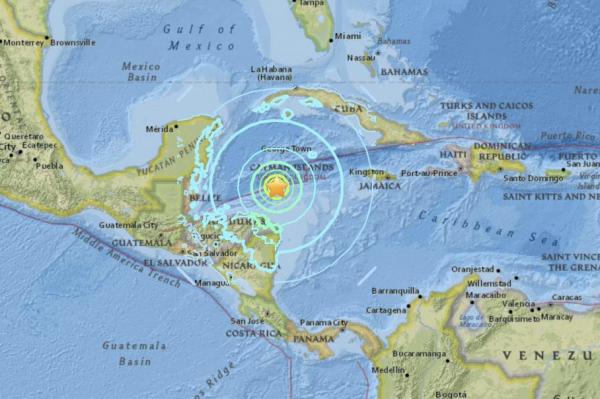National Disaster Center director gives a talk in Merida about tsunamis and earthquakes in order to raise awareness in the population…
TO SENSITIZE the population that in all parts of Mexico there are earthquakes of different intensity and that there is a possibility of the formation of a tsunami, the director of the National Center for Disaster Prevention (Cenapred), Carlos Valdés González, spoke recently in Merida about these natural phenomena.
Invited by local Civil Protection Coordinator Aarón Palomo Euán, the federal official gave a talk to local officials of the three levels of Government, civil organizations and educational institutions on the the soil characteristics in the Peninsula and other data related to earthquakes in the region.
In this regard, he stressed that here there is very low activity in the states of Yucatan, Campeche and Quintana Roo, where earthquakes of Richter magnitude three have been generated. He said that a quake event of up to five degrees is not ruled out, but that they are almost imperceptible because the type of soil is calcareous rock, which gives different manifestations.
“That is precisely what we have to know, the behavior of tectonic plates and their side effects to know what to do in the event that an earthquake occurs and establish the corresponding security protocols so that it does not surprise us,” he said.
In that sense, Valdés González reiterated that although it is commonly thought that the peninsula does not tremble, activity occurs from time to time, which is not very frequent due to the rock formation of the caverns. But the region could be affected by seismic waves at some given time, so he cautioned that no one is exempt from earthquakes throughout the country.
For example, he recalled that last January 10 there was telluric activity in the Caribbean off the coast of Honduras, and waves reached the region, which alarmed the population due to a supposed tsunami that was going to impact the coasts.
After remembering that the largest seismic event on Earth occurred in the Yucatan Peninsula due to the Chicxulub meteorite, he pointed out that it is essential “to have a culture of prevention to know what to do”.
In his speech, Aarón Palomo advised citizens to inform themselves through the official channels and heed recommendations issued in the event of an earthquake or tsunami, as well as to be aware of these natural phenomena.
Source: Punto Medio
Text and photo: Courtesy






